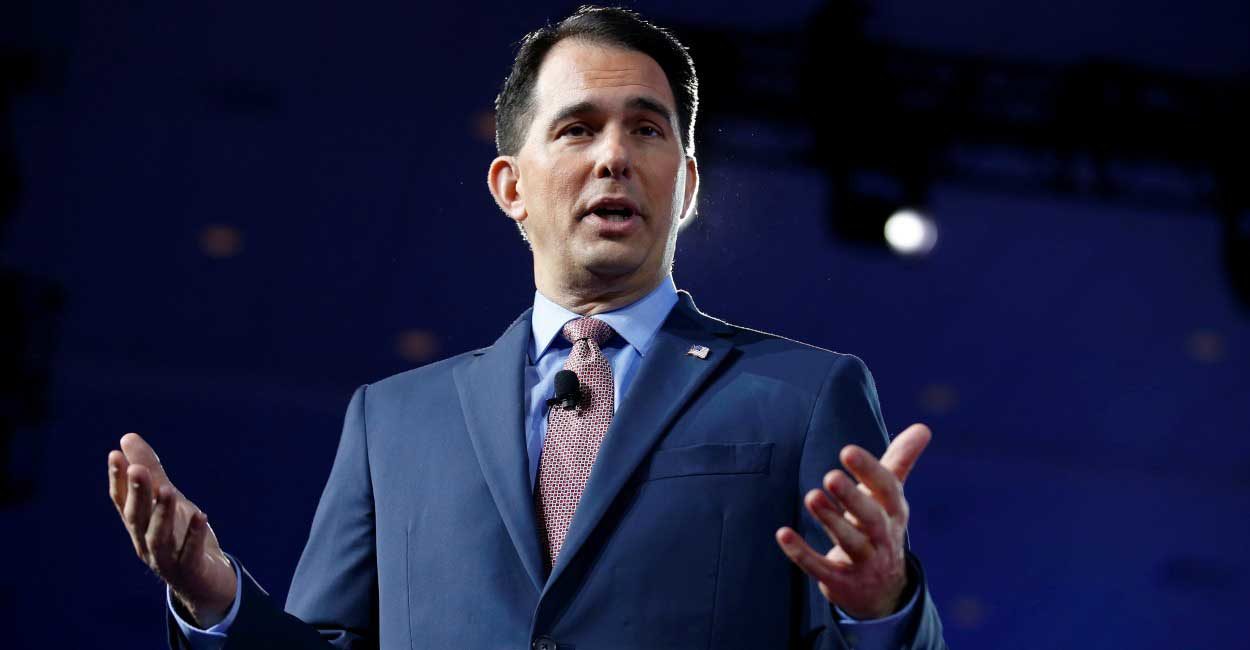LISTEN TO TLR’S LATEST PODCAST:
By Anders Hagstrom
Wisconsin lawmakers took major steps addressing its opioid crisis Monday, as Republican Gov. Scott Walker traveled the state signing 11 bills investing in combating opioid abuse and facilitating treatment.
The bills are pieces of the Wisconsin HOPE agenda, an acronym for heroin and opiate prevention and education. They invest in training for all first responders to use the anti-overdose drug Narcan, require customers to provide identification when purchasing prescription opiates, and increases funding for treatment programs, FOX6 reported Monday. Wisconsin has suffered 69 opioid overdose deaths this year from fentanyl alone.
“We’ve taken serious steps to combat this issue, including creating the Governor’s Task Force on Opioid Abuse, but we won’t stop until there are zero opioid overdoses in Wisconsin,” Walker said in a statement.
The legislation also granted a degree of immunity to people who seek medical help from law enforcement or medical professionals for someone who has overdosed.
The state legislature passed the bills with bipartisan support during a special session declared by Gov. Walker in January. They are in keeping with a national reform movement pushing for softer sentencing and treatment to combat the opioid epidemic rather than traditional prison time. (RELATED: Oregon Poised To Decriminalize Meth, Cocaine, And Heroin)
AB 668 expands the state’s Treatment Alternatives and Diversion (TAD) programs, granting a $1.5 million annual increase in budget for the programs.
Treatment programs have proven more effective at reducing recidivism in drug offenders than prison time. A June study from Pew Charitable Trusts found that imprisoning more drug offenders does nothing to lower drug use or overdose rates.
The study measured drug imprisonment rates across 48 states in 2014 and found that higher rates of drug imprisonment did not result in lower rates of drug use, drug arrests, or overdose deaths. The organization said in a letter to the White House that its findings strongly suggest that tougher drug sentencing is not an effective deterrent for drug crime.
Attorney General Jeff Sessions has worked against the tide of soft-sentencing reform, however, ordering Department of Justice prosecutors in May to pursue the highest sentences possible against all offenders, including non-violent, first time drug offenders.
The Pew study joins a growing base of research contradicting the assumption that imprisonment is an effective means to combat drug crime. A 2014 study from the National Research Council also found that drug imprisonment has “few, if any, deterrent effects.”
Despite the state’s recent efforts, many Wisconsin lawmakers argue the HOPE agenda hasn’t gone far enough. Democratic state Sen. Jennifer Shilling advocates for preventative measures, rather than reactionary treatment programs.
“It doesn’t make sense to wait until someone is already hooked and battling an opioid addiction,” she said in a statement. “By improving health care access and restoring drug abuse prevention grants, we can get to the root of the opioid epidemic rather than simply scratching the surface.”
Send Tips: anders@dailycallernewsfoundation.org
Content created by The Daily Caller News Foundation is available without charge to any eligible news publisher that can provide a large audience. For licensing opportunities of our original content, please contact licensing@dailycallernewsfoundation.org.




1 comment
… [Trackback]
[…] Here you will find 32842 additional Information on that Topic: thelibertarianrepublic.com/gov-scott-walker-signs-11-bills-investing-millions-drug-treatment-programs/ […]